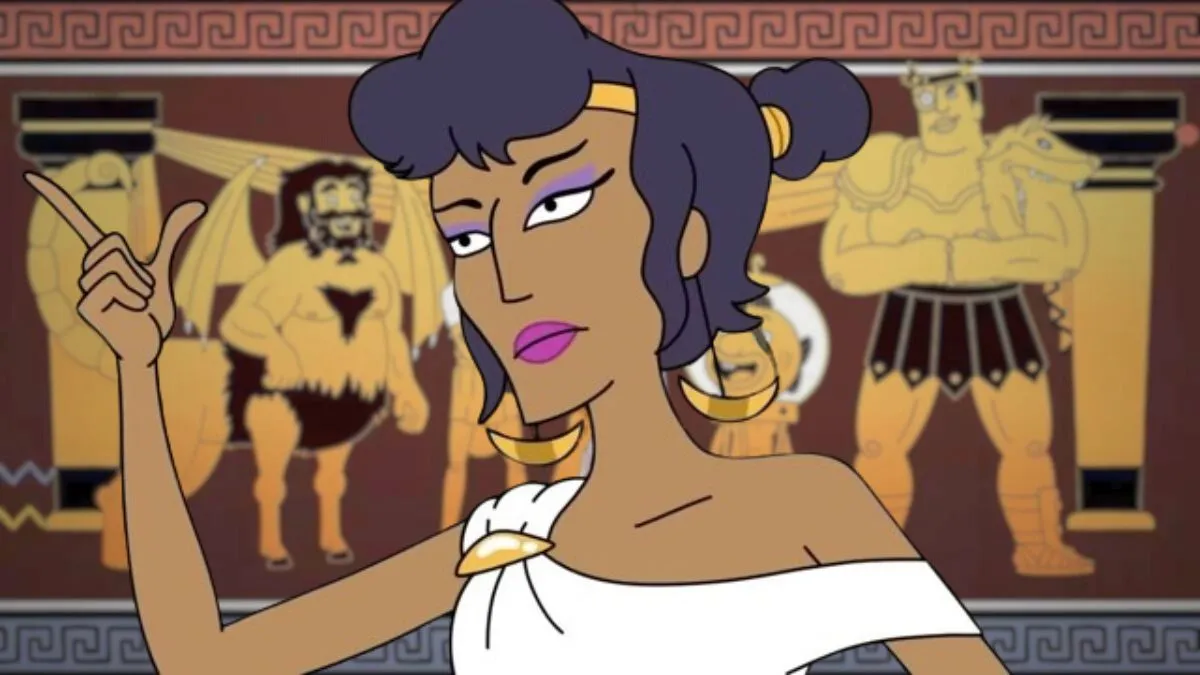Krapopolis brings Dan Harmon’s signature style of adult animation to ancient Greece, following Tyrannis’ attempts to fast-track civilization within the eponymous city. However, many of his challenges stem from his dysfunctional family, particularly his Goddess mother, Deliria. Here’s how Krapopolis’ Deliria factors into the ancient Greek pantheon.
Is Deliria Inspired by an Actual Greek Goddess?
Much like the city of Krapopolis itself, Deliria is an entirely fictional addition to ancient Greek mythos, though it could be argued that she’s portrayed by a real-life goddess in Ted Lasso’s Hannah Waddingham. Despite her name and ability to drive Tyrannis up a wall, Deliria’s not the Goddess of Delirium. In canonical Greek mythology, The Iliad’s Ate would be the closest approximation of such a deity, and her realms of mischievousness and folly certainly overlap with Krapopolis’ Deliria. Waddingham’s character’s official domains are those of Self-Destruction and Questionable Choices.
As the Goddess of Self-Destruction and Questionable Choices, Deliria’s unsurprisingly self-involved and ego-driven. Though a need to be worshipped motivates nearly everything she does, Deliria occasionally expresses a softish spot for her immediate family, including her children Tyrannis, Stupendous, and Hippocampus, and her Mantitaur husband Schlub. She’s demonstrated many powers throughout the show’s run, with immortality and animal-based shape-shifting being two of her most recurring ones.
Canonical Greek Gods Frequently Visit Krapopolis
As a farcical origin story of civilization, Krapopolis often demonstrates how modern cultural norms and institutions were actually kicked off by King Tryannis’ problem of the week. In that vein, Deliria’s status as a non-canonical Greek Goddess is baked into the show itself. The reason Tyrannis’ immortal mother resides with him in Krapopolis and not with her godly brethren is because she was socially ousted by the ruling class on Mount Olympus. Thus, by the show’s established logic, it can be inferred that Deliria and her godly status has been written out of the history books.
Despite Deliria’s strained relationship with her family, particularly Athena and Zeus, Krapopolis still offers its take on various canonical Greek deities. One of the most frequent visitors to Krapopolis is Hermes, who’s played by Ugly Betty‘s Michael Urie and maintains a catty, congenial relationship with Deliria. Steve Buscemi’s Hephaestus, David Koechner’s Poseidon, and Jim Rash’s Dionysus are among the other god-tier cameos in Krapopolis’ first season.






Published: Mar 29, 2024 06:54 pm